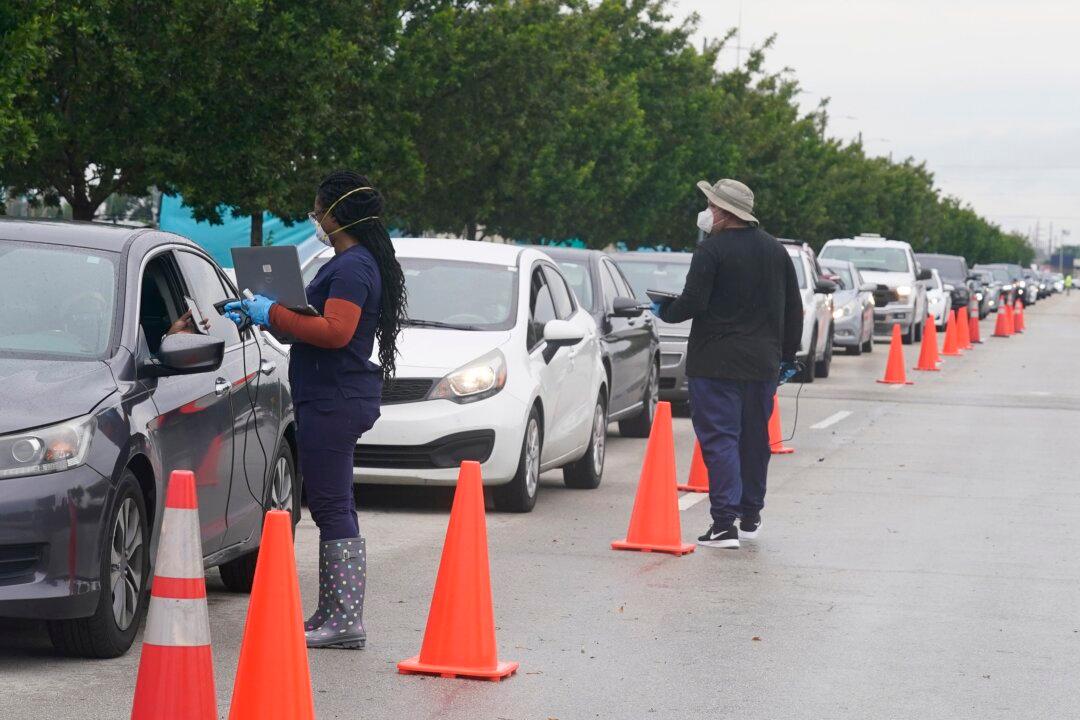The United States’ daily COVID-19 case numbers reached near-record levels due to the spread of the Omicron variant, surpassing the earlier Delta surge. But hospitalizations so far have remained relatively low, as researchers have suggested the new strain presents milder symptoms.
As of Dec. 22, about 243,817 new COVID-19 cases had been reported across the country, according to the most recent data released by the Centers for Disease Control and Prevention (CDC). Some officials believe the peak of the Delta surge came sometime in late August or early September. CDC data show that about 198,000 cases were reported during Delta’s peak on Sept. 1.





